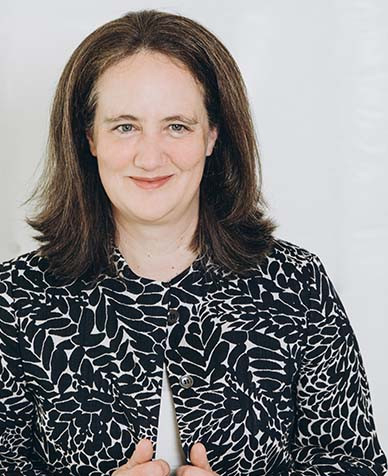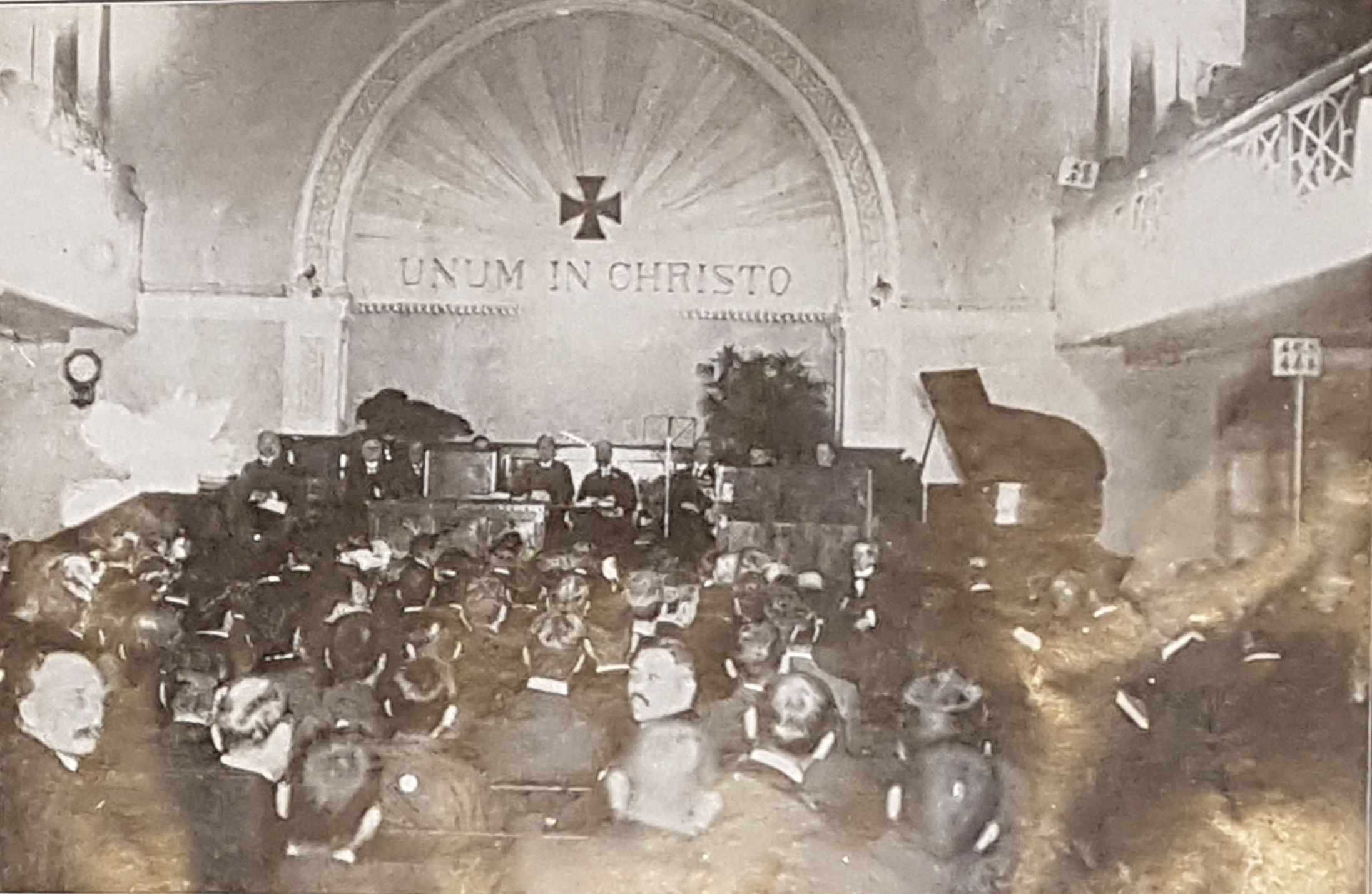Fellows

Judith BECKER
Humboldt-Universität zu Berlin
Fellowship : October 2021 to June 2022
Discipline(s) : Histoire du christianisme
Pays : Germany
FELLOW FOCUS
Judith Becker’s residency seminar will be held on Monday, May 23, 2022: Friendship in Times of War. Student Christian Associations in Europe and World War One
Her suggestions for the week:
Film: The Lives of Others, directed by Florian Henckel von Donnersmark, 2006
In the early 1980s in East Germany, the successful author Georg Dreyman and his partner, the actress Christa-Maria Sieland, are considered to be among the elite intellectuals of the communist state, even though they secretly no longer adhere to the party’s ideas.
The Ministry of Culture begins to take an interest in Christa and sends a secret agent, named Wiesler, to observe her. As the investigation progresses, he becomes increasingly fascinated by the intellectual couple...
Reading: Jehu J. Hanciles: Migration and the Making of Global Christianity, William B Eerdmans Publishing Co (May 28, 2021)
In this book, focussing on migration and, at the same time, on marginalised people, Jehu J. Hanciles maps out a new approach to the history of Christianity. He demonstrates that most of the time, it was not official missionaries but rather people who migrated for very different reasons who spread Christianity and made it a global religion. Using examples from different world regions, he illustrates how women, prisoners of war, slaves, traders or sojourners contributed to evangelisation. In this way, he both downplays the impact of organised missions on the history of Christianity and highlights the role of those who were often regarded as "marginal" in the spread of this religion.
Image:
Research project: Unity, Equality, Fraternity in Times of Nationalism: the Young Ecumenical Movement at the Turn of the Twentieth Century
At the turn of the twentieth century, the unity of all Christians no longer seemed to be only a theoretical belief. New technologies and means of communication facilitated close cooperation and personal exchange between people and churches across countries and even continents. Inspired by this ideal, young people’s associations, the YMCA, the Student Christian Movement and the World Student Christian Federation (WSCF), developed federations of lived communion. However, this was also a time of increasing nationalism, colonialism and war, in which the young ecumenical movement took part as well. How did they hold together their ecumenical vision of a worldwide community uniting all Christians and their equally strong national feelings? Drawing on German, French, British, Indian and Japanese Student Christian Federations, this project examines this question from an entanglement perspective. [It studies this question in various dimensions: political, societal, individual and ecclesiological, by focusing on war and peace, social work, nationalism in the struggle against colonialism, Christian beliefs and practices, and the work that led to achieving ecumenical unity. The project will cover the period ranging from the foundation of the WSCF in 1895 through the 1920s.By focussing on war and peace; social work; the uses of “nationalism” in the struggle against colonialism; beliefs and "Christian" practices; from the foundation of the WSCF in 1895 through the 1920s, different dimensions – political, societal, individual and ecclesiological – are examined. By linking this specific aspect of the global history of Christianity with general history, this study embeds the history of Christianity in political and cultural history.
Biography
Judith Becker is Professor of Early Modern and Modern History of Christianity at the Humboldt-Universität zu Berlin, Germany. From 2007 to 2017, she was a senior research fellow at the Leibniz Institute of European History, Mainz, Germany where she headed the research group “Transfer and Transformation of Missionaries’ Images of Europe in Contact with the ‘Other’, 1700-1970,” funded by the Federal Ministry of Education and Research from 2010 to 2014. In 2015/16, she was a fellow at the Swedish Collegium for Advanced Studies in Uppsala. She holds a PhD in Church History from the University of Bochum (2006) and a Habilitation from the University of Mainz (2014). Her research interests include the ecumenical movement in the nineteenth and early twentieth centuries, internationalism and nationalism, the history of missions, World Christianity, reformed confessionalisation, faith migration and Protestant church ordinances in the Reformation era. She is active in several academic organisations and scientific advisory boards, including, among others, the Encyclopedia of Early Modern History Online and the Edition Reformierter Bekenntnisschriften.
Bibliography (selective)
Monographs
- Judith BECKER, Conversio im Wandel: Basler Missionare zwischen Europa und Südindien und die Ausbildung einer Kontaktreligiosität, 1834–1860 (VIEG 238), Göttingen 2015.
- Judith BECKER, Gemeindeordnung und Kirchenzucht. Johannes a Lascos Kirchenordnung für London (1555) und die reformierte Konfessionsbildung (SMRT 122), Leiden u.a. 2007.
Edited volumes
- Judith BECKER / Katharina STORNIG (ed.), Menschen – Bilder – Eine Welt. Ordnungen von Vielfalt in der religiösen Publizistik um 1900 (VIEG Beiheft 118), Göttingen 2018
- Judith BECKER (ed.), European Missions in Contact Zones. Transformation through Interaction in a (Post-)Colonial World, (VIEG Beiheft 107), Göttingen 2015.
- Judith BECKER / Andrea HOFMANN / Corinna EHLERS (ed.), Zugänge zur europäischen Religionsgeschichte im Gespräch. Irene Dingel zum Geburtstag, Cursor_ Explorer: https://cursor.pubpub.org/digitales-projekt-religionsgeschichte
Articles
- Judith BECKER, Christentumsgeschichte als Migrationsgeschichte, in: Gregor Etzelmüller/Claudia Rammelt (ed.), Migrationskirchen. Internationalisierung und Pluralisierung des Christentums in Deutschland, Leipzig 2021, 83-104.
- Judith BECKER, Religion – Mission – Akkulturation. Zum materiellen Erbe deutscher Mission in China, in: Kunstchronik 74.7: Globale Räume des deutschen Kolonialismus. Begriffe und Methoden – Case-Studies – disziplinäre Querverbindungen, ed. Michael Falser, 2021, 363-371.
- Judith BECKER, Christentumsgeschichtsschreibung. Europäisches Christentum und globale Perspektiven, in: Judith Becker/Corinna Ehlers/Andrea Hofmann (ed.), Zugänge zur europäischen Religionsgeschichte im Gespräch. Irene Dingel zum Geburtstag, Cursor_ Explorer: https://cursor.pubpub.org/pub/christentumsgeschichtsschreibung-global (31.8.2021; 1st release Mai 2021).
- Judith BECKER, Zwischen kultureller Überlegenheit und universaler Menschlichkeit. Selbstverständnisse europäischer Christinnen und Christen im Kontakt mit den "Anderen" im 19. Jahrhundert, in: Michael Meyer-Blanck (ed.), Christentum und Europa. XVI. Europäischer Kongress für Theologie (10.-13. September 2017 in Wien) (VWGTh 57), Leipzig 2019, 474–497.
- Judith BECKER, Missions in Africa: Lutheran Churches, Enculturation, and Ecumenism, in: Alberto Melloni (ed.), Martin Luther. A Christian between Reforms and Modernity (1517–2017), Berlin/Boston 2017, 1351-1374.
- Judith BECKER, Gendered behaviour: religious norms and sexual deviance in the Basel India Mission in the first half of the nineteenth century, in: Jyoti Atwal/Iris Fleßenkämper (ed.), Gender and Violence in Historical and Contemporary Perspectives. Situating India, London/New York 2020, 76-94.
- Judith BECKER, What was European about Christianity? Early Nineteenth-Century Missionaries’ Perceptions, in: id./Brian Stanley (ed.), Europe as the Other. External Perspectives on European Christianity (VIEG Beiheft 103), Göttingen 2014, 29-52.

